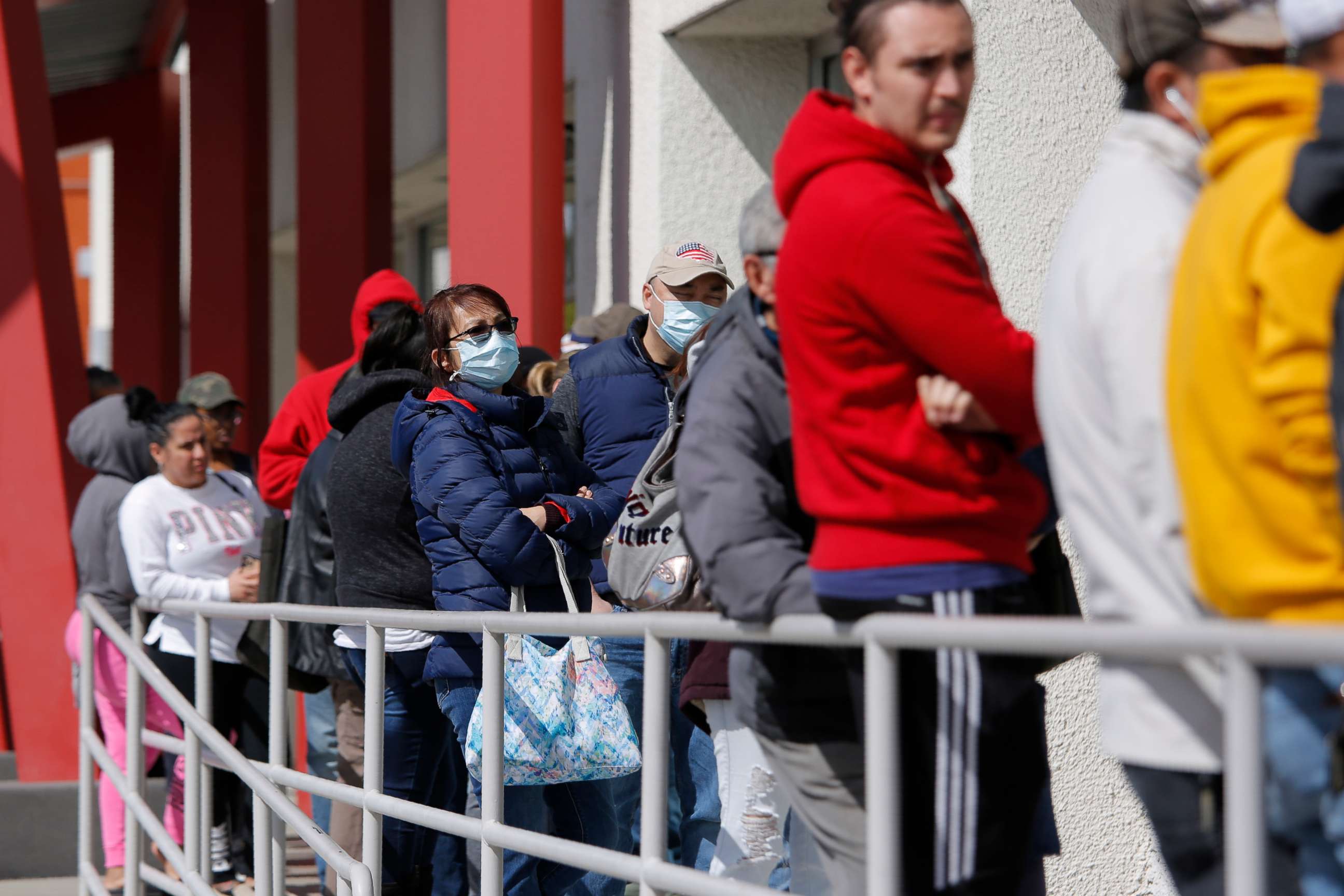What to do if you lost your health insurance amid coronavirus pandemic
What to do if you lost your health insurance
As the nation confronts a fast-moving novel coronavirus pandemic, millions of Americans are fighting another crisis at home: joblessness and a loss of health insurance.
It's a toxic mix that threatens to widen the scope of the crisis, particularly as many Americans don't even know what their options are.
Here are three things to know:
If you lost health insurance through your job, you have 60 days to enroll in 'Obamacare'
Open enrollment to buy health insurance through the federally run health care exchanges -- created through the Affordable Care Act or "Obamacare," -- has already passed for 2020. And this week, President Donald Trump rebuffed Democratic calls to reopen enrollment because of the ongoing health crisis.
Tune into ABC at 1 p.m. ET and ABC News Live at 4 p.m. ET every weekday for special coverage of the novel coronavirus with the full ABC News team, including the latest news, context and analysis.
But open enrollment of the federal exchanges might not matter. If you've lost health insurance because you quit or got fired from a job, you have 60 days to enroll in the federal exchanges by going to www.healthcare.gov.
Other situations that qualify for special enrollment include getting married, having a baby or if a death in the family causes you to lose your insurance.

Another option for insurance after losing a job is referred to as COBRA, which stands for Consolidated Omnibus Reconciliation Act.
COBRA allows a person to keep their employer-sponsored health care plan for up to 18 months. Because you have to pay the entire cost, rather than cost-share with your employer, it's typically considered a short-term option for people between jobs who don't want an interruption in coverage.
If you never had health insurance and you lost your job, you might qualify for Medicaid
While people who lost their health insurance through their jobs will qualify for special enrollment in the Obamacare exchanges, one big concern is the estimated 28 million people who never had insurance in the first place.
It's estimated that some 6.7 million of those people qualify for Medicaid and just never signed up. They can still enroll.
However, this can get tricky because there are 14 states that opted not to expand Medicaid under the Affordable Care Act. It's estimated that 2.3 million people live below the poverty line but remain uninsured because they live in one of the states that did not expand Medicaid.
If you never had health insurance and don't qualify for Medicaid, check with your state
Larry Levitt, executive vice president for health policy at the Kaiser Family Foundation, estimates that the people hardest hit by Trump's decision not to reopen the federal health care exchanges will be the estimated 9 million uninsured Americans who qualify for subsidies on the exchanges but make too much to qualify for Medicaid.
These can often be families or young people looking to save a few dollars each month by not enrolling in Obamacare because they are healthy. The Obama-era law had required enrollment in a health insurance plan in a bid to force cost sharing across a bigger pool of people. But a federal appeals court struck down that requirement after an aggressive challenge by Republican-led states, backed by the Trump administration.
"A lot of people made insurance decisions before coronavirus," said Levitt.
Levitt suggests the first thing to do if you want insurance and don't have it is to check the www.healthcare.gov website to see if you might qualify.
The other option is to check with your state government. A dozen states and the nation's capital, which run their own health care exchanges, have opted to reopen enrollment, independent of the federal exchanges. In addition to the District of Columbia, that list includes Colorado, California, Connecticut, Idaho, Maryland, Massachusetts, Minnesota, New York, Nevada, Rhode Island, Vermont and Washington.
Trump announced late Thursday that he's looking at possible cash payments to cover medical bills, although he didn't provide any details. Vice President Mike Pence described the possibility of direct payments to hospitals to cover treatment costs for uninsured Americans and that "the president will make a final decision tomorrow."
ABC News' Liz Alesse and Jordyn Phelps contributed to this report.
What to know about coronavirus:
- How it started and how to protect yourself: coronavirus explained
- What to do if you have symptoms: coronavirus symptoms
- Tracking the spread in the US and Worldwide: coronavirus map
